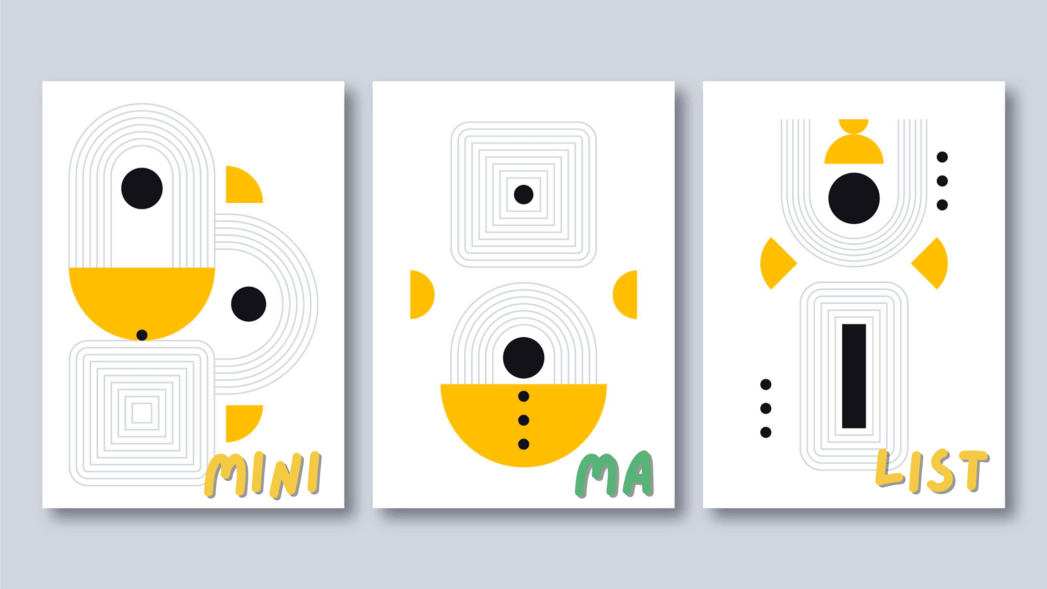In a world pulsating with excess, where the narrative often celebrates more, faster, and bigger, the minimalist lifestyle stands as a quiet revolution. Embracing the essence of ‘less is more,’ minimalism isn’t merely a trend; it’s a profound shift in perspective—a conscious choice to simplify our lives intentionally. At its core, the minimalist lifestyle champions the art of living with purpose, focusing on what truly matters. Here, we’ll explore the depths of minimalism, its profound impact, and how this deliberate way of living can pave the path to unparalleled joy and contentment in our modern, fast-paced world. Define Minimalist Lifestyle The minimalist lifestyle isn’t solely about owning a specific number of items or maintaining a sterile living space. It’s a philosophy that redefines our relationship with possessions, consumption, and even our mindset. At its essence, minimalism is about stripping away the unnecessary, eliminating the excess that weighs us down physically, mentally, and emotionally. It’s an intentional move towards simplicity, focusing on what truly adds value to our lives while shedding the distractions that cloud our vision of contentment. Importance of Embracing Minimalism in Modern Life In an era characterized by constant stimulation and consumerism, embracing minimalism offers a refreshing counterbalance. The pace of modern life often leaves us overwhelmed, suffocated by possessions, commitments, and a perpetual chase for more. However, by adopting a minimalist lifestyle, individuals can reclaim control over their lives. This deliberate choice fosters clarity, allowing us to discern between the essential and the superfluous, ultimately leading us toward a path of liberation, peace, and profound joy. Understanding Minimalism What is Minimalism? Minimalism transcends the mere act of decluttering or simplifying possessions. It’s a profound mindset shift that invites us to evaluate the role of material possessions in our lives and consciously prioritize what truly matters. At its core, minimalism encourages intentional living—aligning our actions and possessions with our values and aspirations. Minimalism isn’t about deprivation or denying oneself; rather, it’s about discovering abundance in simplicity. It’s an invitation to curate a life that’s purposeful, fulfilling, and aligned with our individual definitions of happiness and contentment. Core Principles of Minimalist Living 1. Simplicity as a Key Element Simplicity lies at the heart of minimalism. Embracing simplicity doesn’t mean forsaking life’s pleasures; instead, it’s about streamlining our lives to amplify what truly brings us joy. It’s paring down the excess—whether it’s material possessions, commitments, or distractions—to revel in the clarity and freedom that simplicity offers. 2. Mindful Consumption and Intentionality Minimalism champions mindful consumption—an intentional approach to what we bring into our lives. It prompts us to pause before making purchases, asking ourselves whether the item aligns with our values and if it genuinely enhances our life in a meaningful way. This mindfulness fosters a deeper appreciation for what we own, leading to a more fulfilling existence. 3. Decluttering Physical and Mental Space Minimalism extends beyond physical decluttering; it encompasses decluttering mental space as well. By letting go of excess belongings and unnecessary commitments, we create room not just in our homes but also in our minds. This decluttering process liberates us from the weight of possessions and mental clutter, fostering mental clarity and inner peace. The principles of minimalism—simplicity, mindfulness, and decluttering—are interconnected threads that weave together to form a tapestry of intentional living. Understanding and embracing these principles set the foundation for embarking on a minimalist lifestyle—a journey toward discovering the power of less and unlocking maximum joy in our lives. Benefits of Embracing Minimalism Mental Clarity and Reduced Stress One of the foremost advantages of embracing minimalism is the profound impact it has on mental well-being. By decluttering both our physical and mental spaces, we pave the way for enhanced mental clarity. Simplifying our surroundings reduces the visual noise and chaos, allowing our minds to rest and rejuvenate. Minimalism alleviates the burden of excess—be it possessions, commitments, or distractions—thus lowering stress levels. This intentional lifestyle cultivates a sense of calm and tranquillity, enabling us to focus on what truly matters and fostering a deeper connection with ourselves. Financial Freedom and Smart Consumption Habits Minimalism isn’t just about decluttering; it’s about reassessing our relationship with material possessions and our approach to spending. Embracing minimalism often leads to financial liberation. By curbing impulsive purchases and focusing on mindful consumption, we save money and make more conscious spending choices. Smart consumption habits cultivated through minimalism encourage us to invest in high-quality items that add genuine value to our lives rather than succumbing to the allure of excessive consumerism. This shift in mindset not only bolsters our financial well-being but also promotes a sense of fulfilment derived from intentional and thoughtful purchases. Environmental Impact and Sustainability Minimalism inherently aligns with sustainable living practices. By advocating for a ‘less is more’ approach, minimalism reduces unnecessary waste and consumption. Choosing quality over quantity and embracing a minimalist lifestyle inherently contributes to environmental sustainability. Reducing our reliance on material possessions translates to fewer resources consumed, less waste generated, and a smaller carbon footprint. Embracing minimalism empowers individuals to make environmentally conscious choices, thereby contributing positively to the planet’s well-being. Getting Started with Minimalism Assessing Personal Values and Goals The journey toward a minimalist lifestyle begins with introspection. Take time to assess your personal values, aspirations, and goals. Reflect on what truly matters to you—both in terms of possessions and life experiences. Understanding your priorities will guide your journey toward intentional living and help you align your actions with your values. Decluttering Guide: 1. Room-by-room approach Begin your minimalist journey by adopting a room-by-room approach to decluttering. Start with one area at a time—whether it’s a closet, a bookshelf, or a workspace. Evaluate each item, asking yourself if it serves a purpose or brings genuine joy. Be intentional about what stays and what goes, aiming to keep only the items that align with your values and goals. 2. Sentimental Items and Letting Go Letting go of sentimental items can be challenging, but it’s an integral part of embracing minimalism. Approach these items


